
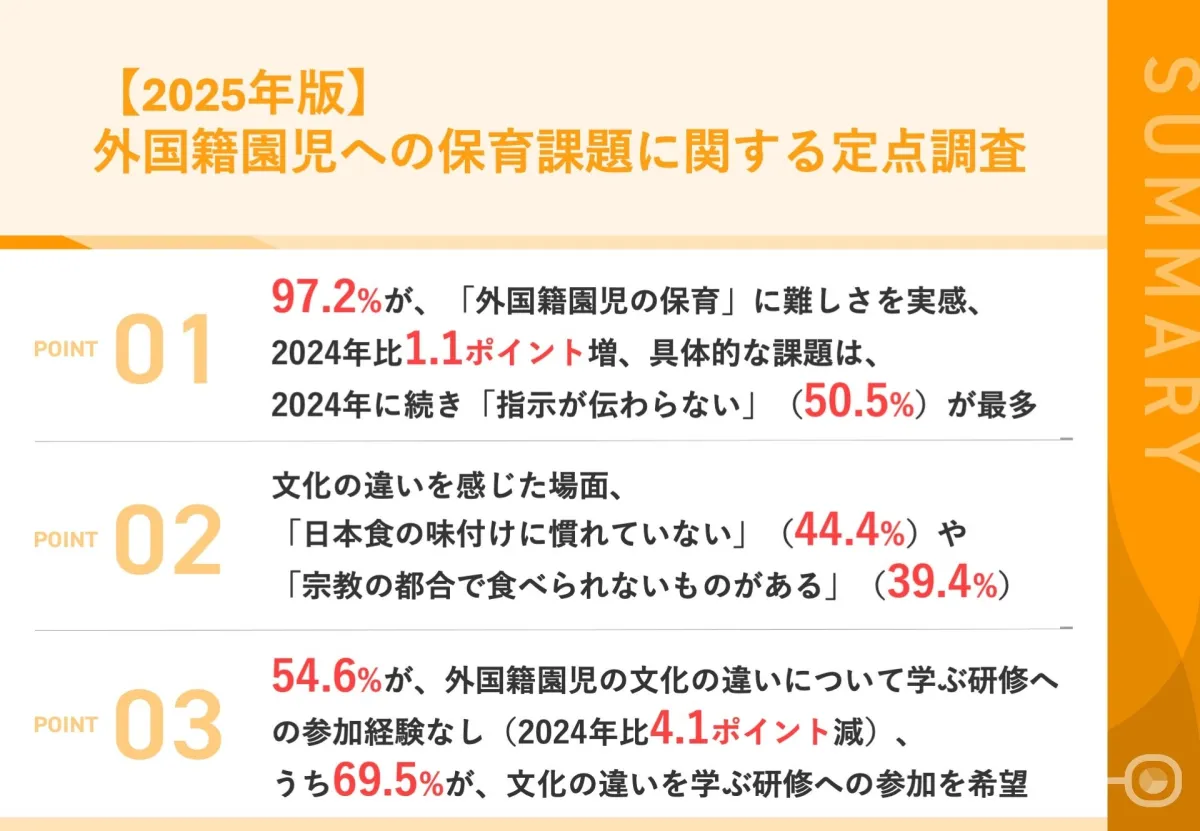
Exploring the Challenges and Needs of Supporting Foreign Children in Nursery Education for 2025
Exploring the Challenges of Foreign Children in Nursery Education for 2025
Recent research conducted by Konnect Labo, run by Asuka Corporation, reveals significant challenges faced by nursery teachers supporting foreign children. This study indicates that 97.2% of educators report difficulties in caring for foreign children, an increase of 1.1 points compared to 2024. The need for effective communication and cultural understanding emerges as a critical concern in these educational settings.
Key Findings
1. Communication Challenges
One of the primary issues identified is communication barriers. The survey found that 50.5% of nursery teachers feel that instructions are often not understood by foreign children. This highlights a pressing need for effective communication strategies and tools within multilingual classrooms. In addition to language proficiency, the cultural context of communication plays a vital role in fostering understanding and connection.
2. Cultural Differences in Dietary Needs
Cultural differences significantly impact children's dietary habits, as represented in the survey findings. 44.4% of educators noted that foreign children are unaccustomed to the flavors of Japanese cuisine, while 39.4% reported needing to accommodate dietary restrictions related to religious practices. These insights point to the necessity for inclusive meal planning that respects diverse cultural backgrounds.
3. Demand for Cultural Training
The survey further revealed that 54.6% of teachers have never participated in training focused on understanding the cultural differences of foreign children, although there is a growing interest, with 69.5% expressing a desire to attend such workshops. Various responses indicate a longing for guidance on how to nurture these diverse relationships effectively, showing the importance of ongoing professional development in fostering cultural sensitivity.
4. Insights from Educators
Free responses from educators shed light on specific cultural misunderstandings, such as challenges in addressing dietary concerns and navigating traditional customs from other countries. Many educators expressed that it's not just about adapting children to Japanese norms, but rather about finding ways to harmonize and celebrate cultural diversity within educational environments.
5. The Need for Inclusivity in Education
As globalization continues to increase the number of children with foreign backgrounds, the need for inclusive practices in nurseries becomes paramount. The study suggests that nursery schools must strive to create environments where all children, regardless of nationality, feel respected and valued. Promoting an understanding of both foreign cultures and Japanese traditions will be essential in achieving this.
Conclusion
As nursery education evolves with the increasing diversity of its student body, it is crucial that educators are equipped with the right skills and knowledge. This research highlights the ongoing challenges confronted by nursery teachers and reinforces the call for comprehensive training programs that advocate cultural understanding. In recognition of these findings, it is evident that nurturing inclusivity in educational practices will greatly benefit both foreign children and their peers, facilitating a richer learning experience for all.
For more detailed insights, download the full research report here.
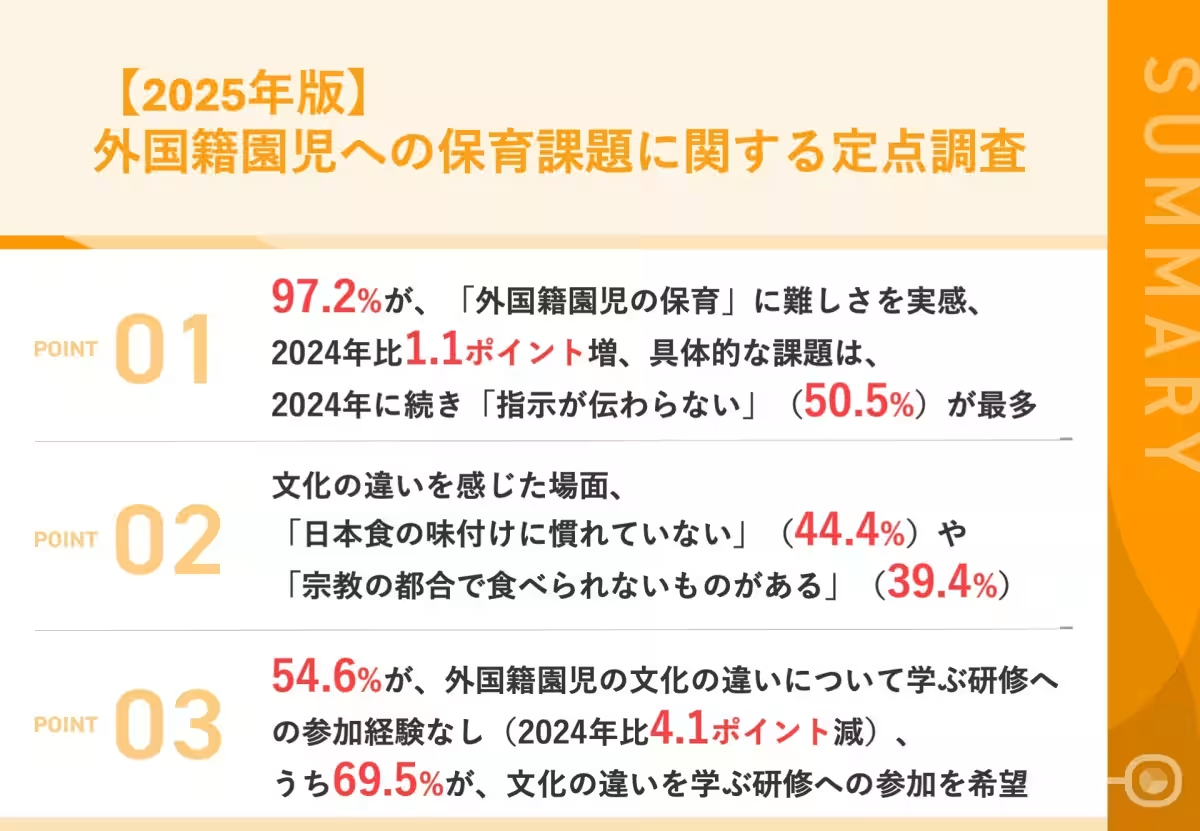
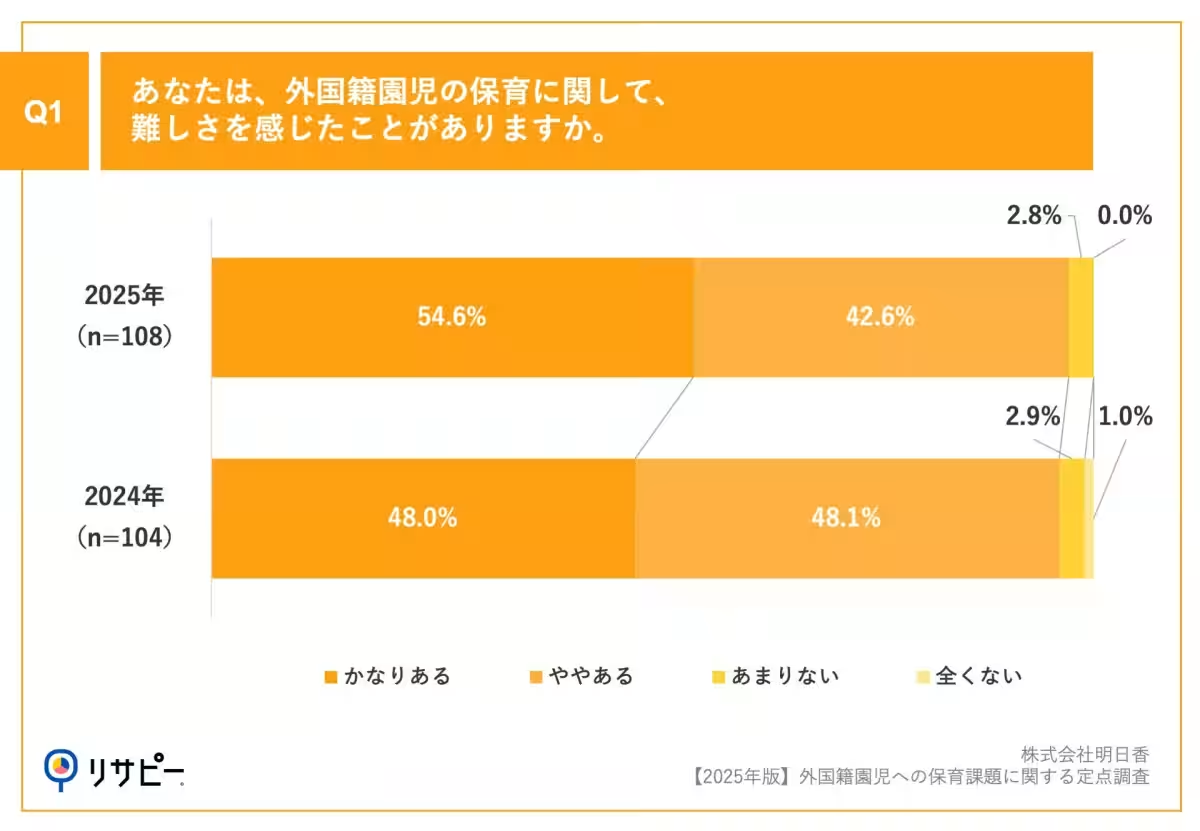
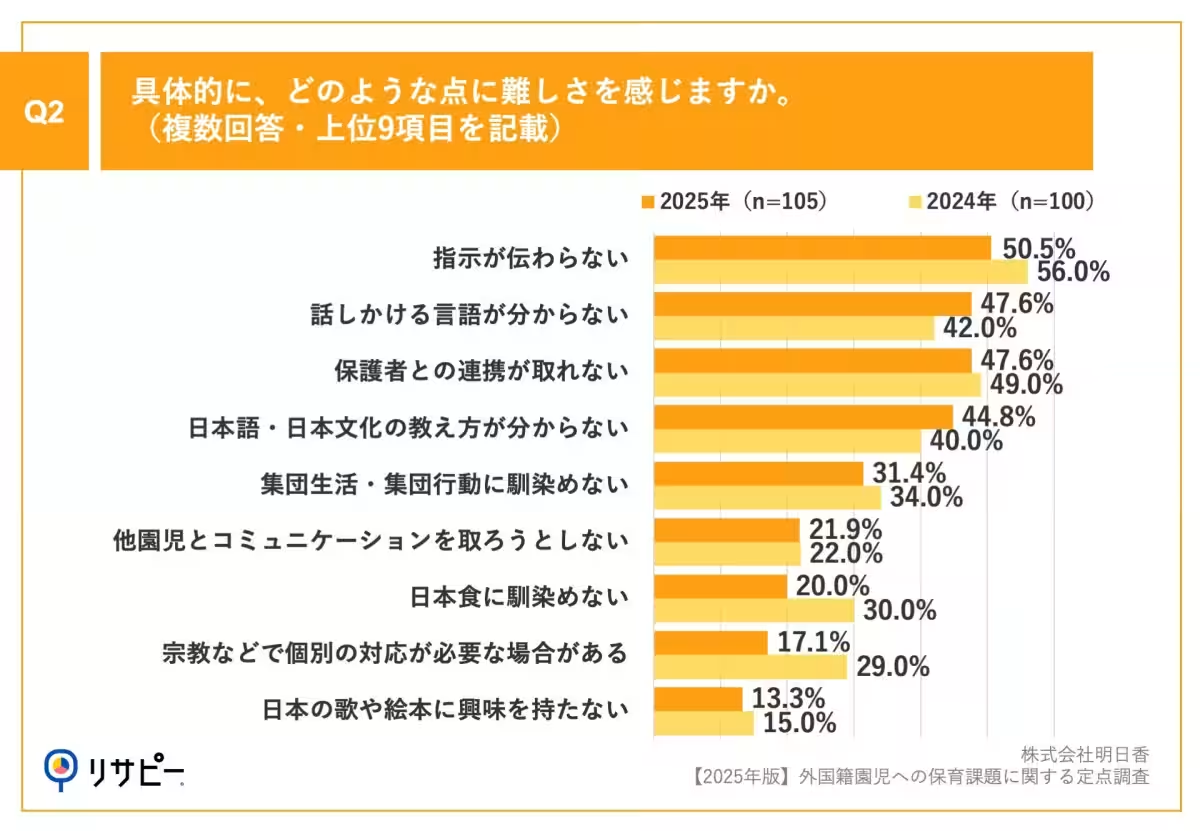
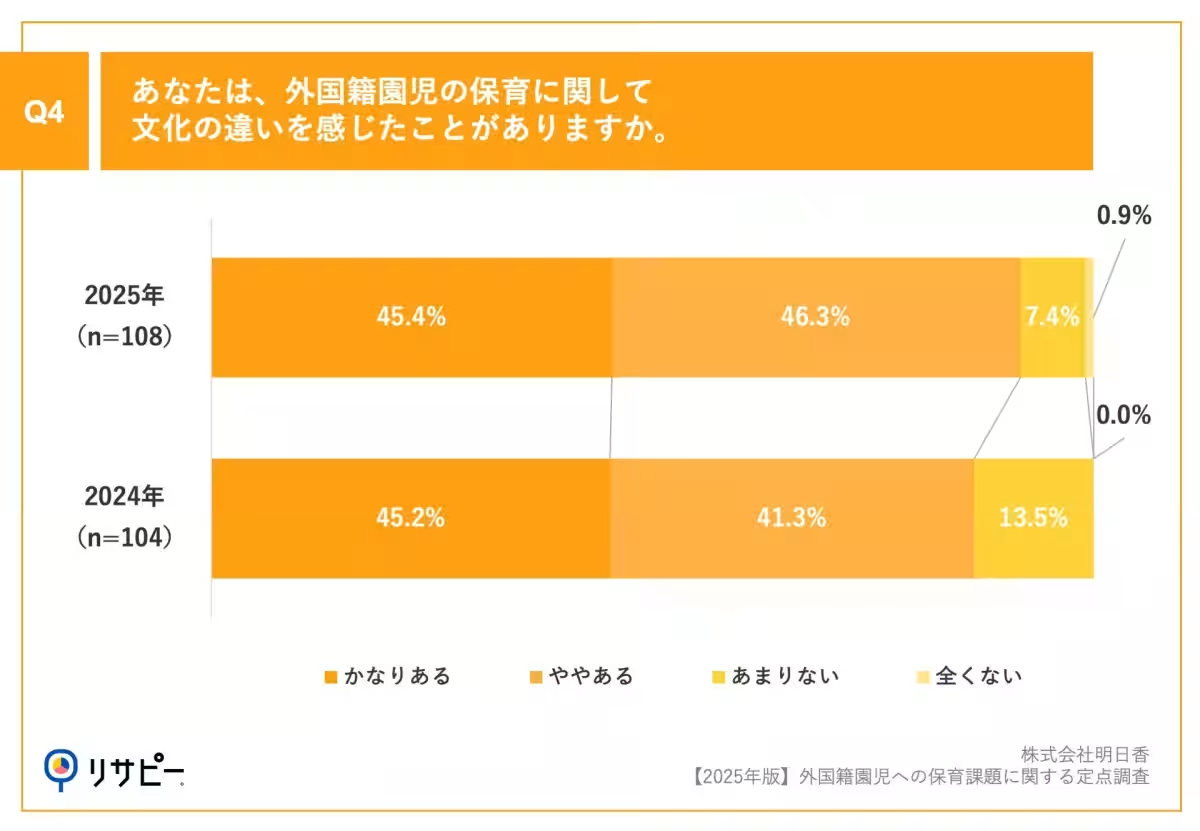
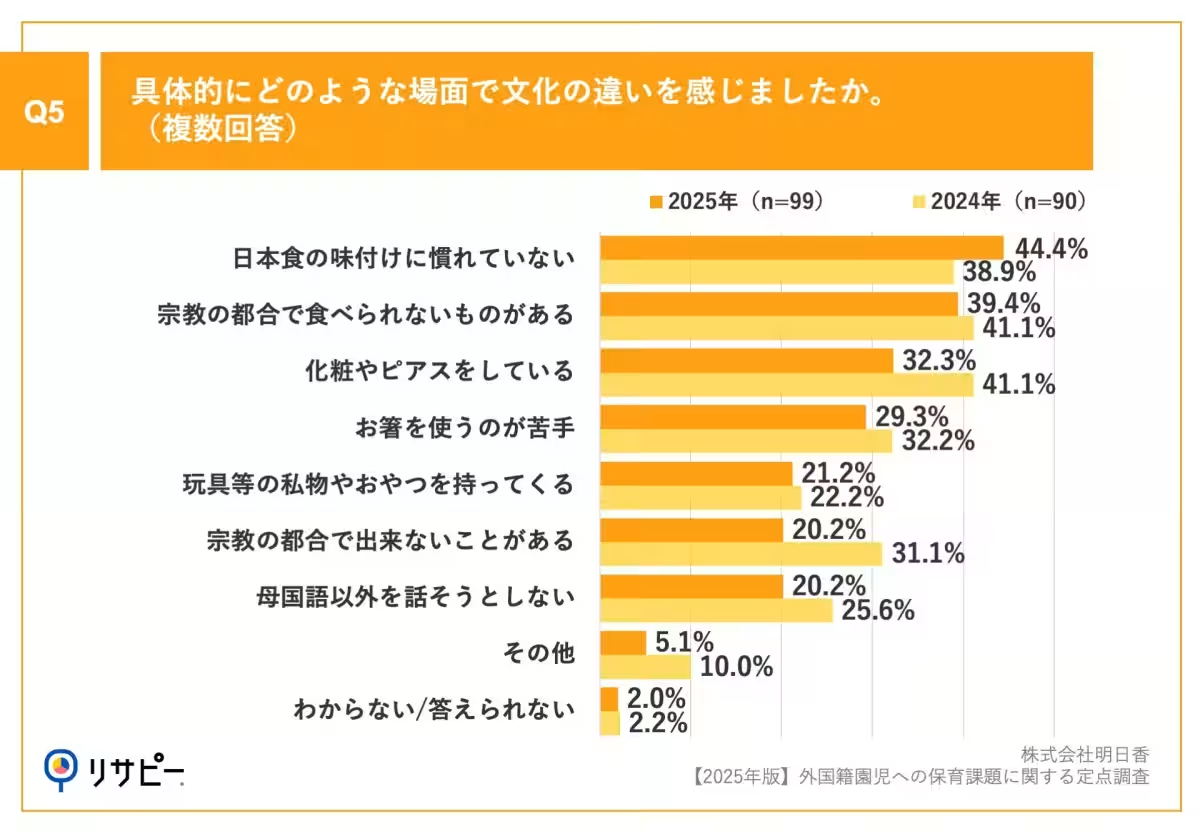
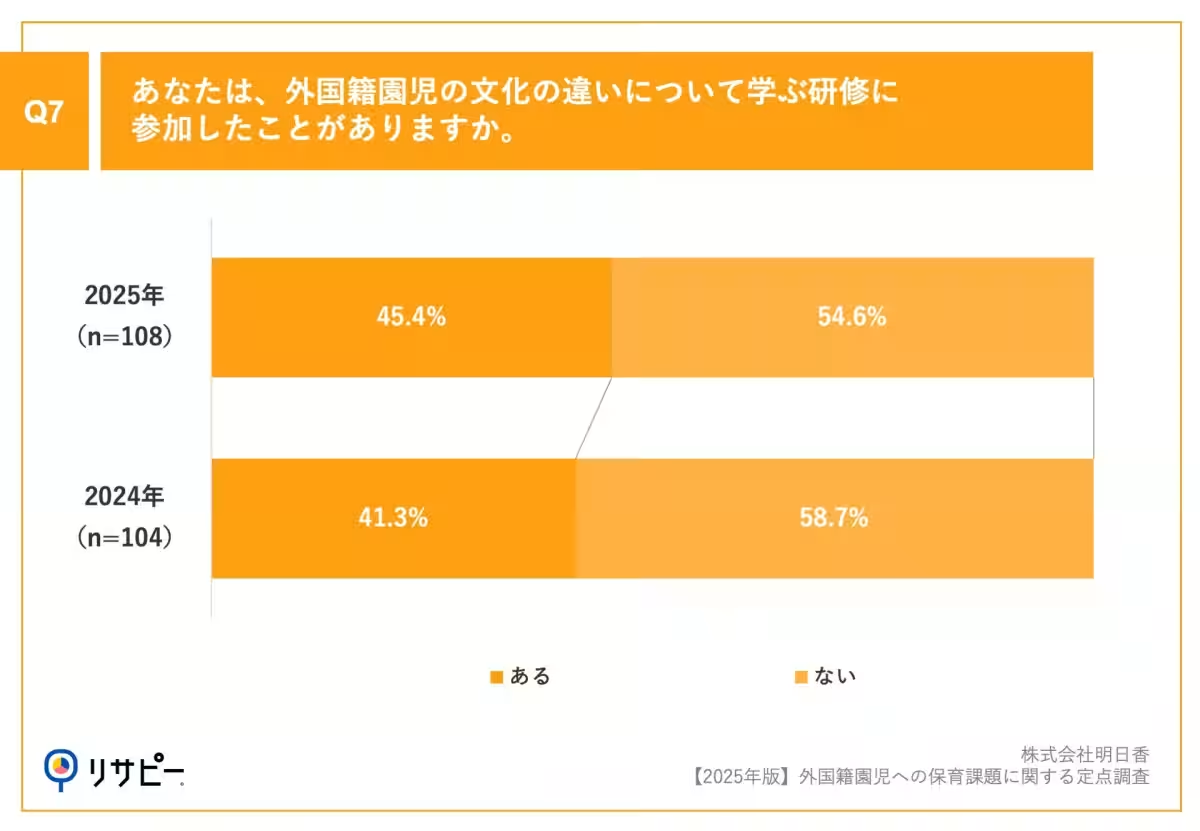
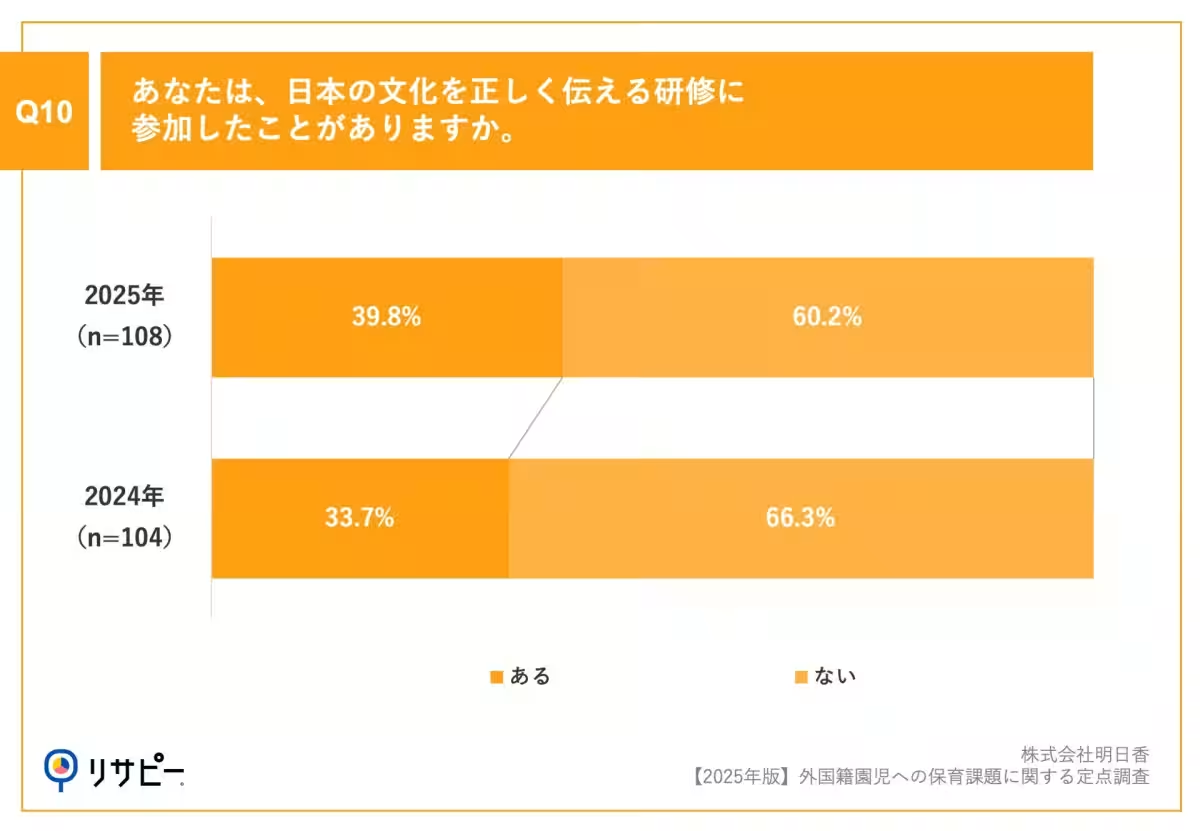
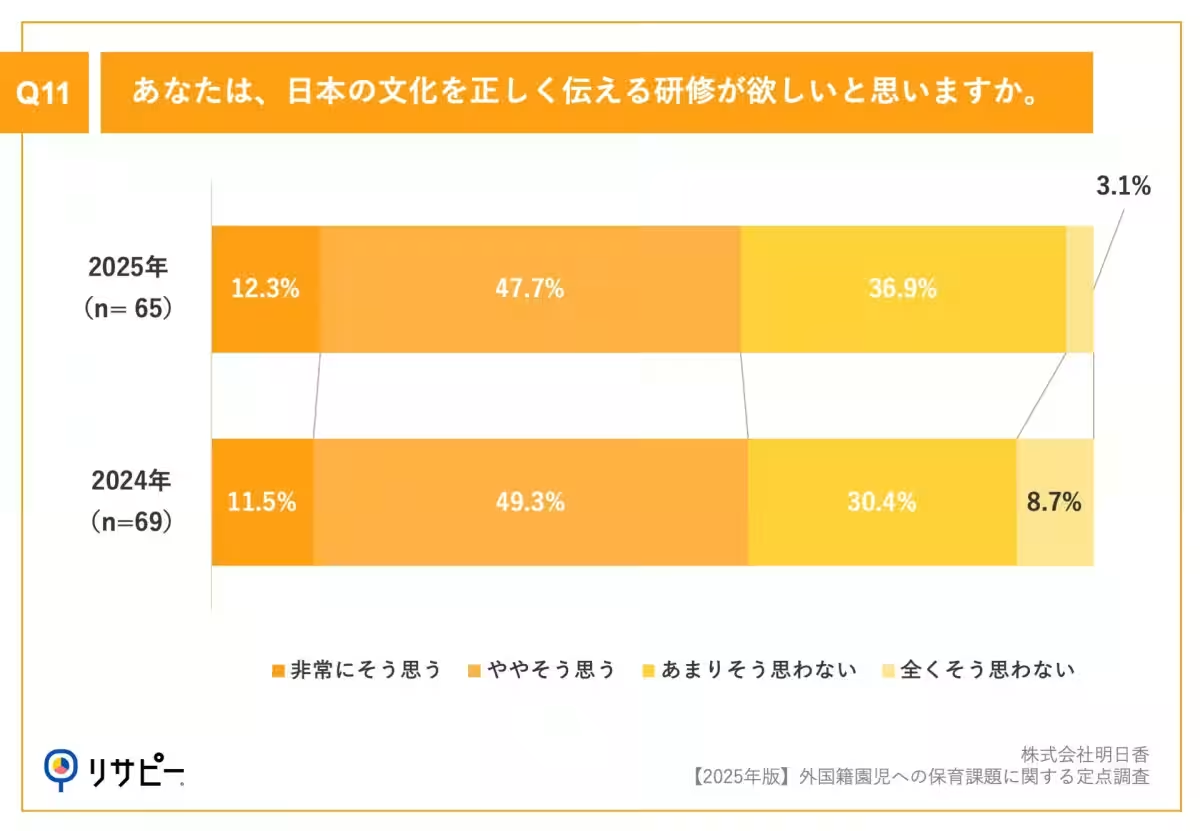

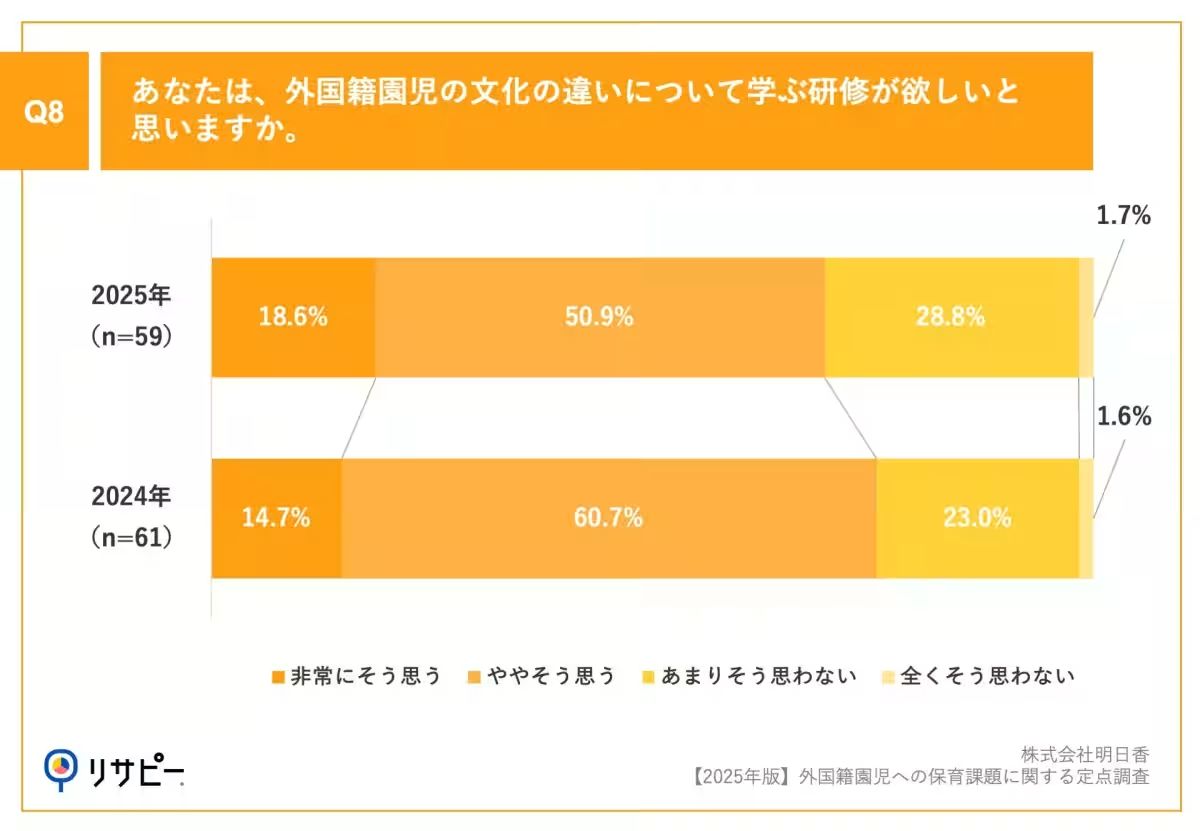
Topics People & Culture)










【About Using Articles】
You can freely use the title and article content by linking to the page where the article is posted.
※ Images cannot be used.
【About Links】
Links are free to use.